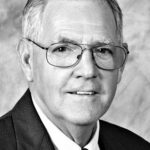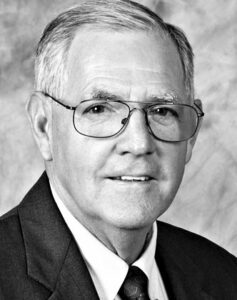“But encourage one another daily, as long as it is called Today, so that none of you may be hardened by sin’s deceitfulness” (Hebrews 3:13); “And let us consider how we may spur one another on toward love and good deeds” (Hebrews 10:24).
One of the most common misunderstandings among church members is that we hire pastors as the professional Christians who will do all of the work among the members and then preach to us on Sundays. Yet, in the Word of God, the pastors are to equip the saints (believing members) for “their works of ministry” (Ephesians 4:11-12).
The two verses above from Hebrews are spoken to Christians—not just pastors. In the Hebrews 3 passage we are told that we are to encourage other believers on a daily basis so their hearts will not be hardened. Note that this encouragement is to be on a daily basis (not just on Sundays).
The Hebrews 10 passage instructs us that we are to consider how we may help others on toward love and good deeds. In order for us to do this, we must know the flock. Again, these words are addressed to believers, not just to pastors.
There are many other verses which instruct us as believers (and members of a local church) to be about the business of ministry among our fellow believers. We are told that pure religion is to look after orphans and widows (James 1:17), we are instructed to build up others (1 Thessalonians 5:11); to comfort others (1 Thessalonians 4:18); to encourage others (1 Thessalonians 5:11); to counsel others (Romans 15:14); to abound in love for others (1 Thessalonians 3:12); to bear others’ burdens (Galatians 6:2); to teach and admonish each other (Colossians 3:16); to speak to each other in psalms, hymns and spiritual songs (Ephesians 5:1); to submit to one another (Ephesians 5:21) and to pray for each other (James 5:16).
These instructions, addressed to all believers, cannot be carried out on Sunday alone. They must be attended to daily as we serve among the members of our local body. When one uses the term “ministry” we ordinarily think of the work of the pastor. Certainly he has a special obligation to the flock, but the New Testament also calls on each of us to care for our fellow members, looking upon their needs as our responsibilities.
This caring could be carried out in their homes, on the job, at school, in the hospital, at a nursing home, perhaps even in a jail. It involves getting to know our fellow members and their families, learning what spiritual, physical and financial needs they have.
Often we have a tendency to spend time with those members who are popular and with whom we feel most comfortable, but usually they are the ones with the fewest needs. The most lonely and those who are all alone, are the ones who really need us. Perhaps that is why our Lord labeled pure religion as when one cares for orphans and widows, for usually there are no returns or reciprocity.
Here are some practical suggestions and considerations to help us to obey the Lord in the area of visitation:
• Don’t expect the pastor to do it; look upon it as your responsibility.
• Consider it a privilege to serve the Lord and His people in this manner.
• Ask God to help you determine just how you can serve in this capacity.
• Set some reasonable goals or expectations; otherwise you may continually put it off.
• Choose a companion to go with you and to encourage your responsibility in this area.
• Make a list of those people in your congregation whom you do not know and plan to get to know them.
• Make a list of those people in your congregation whom you suspect have spiritual, family, physical, or financial needs.
• Determine the needs with which you feel capable of helping.
• Plan to spend time with these individuals or families. Keep in mind it does not have to be a formal visit. It could be just shopping together, picnicking or enjoying a hobby together.
• Organize others to help you with larger needs.
• Keep your pastors, elders and deacons informed of the needs, especially if you are not capable of helping meet those needs. Ask for their help.
• Certain personal needs will require confidentiality. Don’t violate their trust by talking to others.
• Pray with these members. If exhortation is needed, do so firmly, but lovingly.
• Do not promise them help and then drop the matter. People who have previously suffered disappointment need to have those on whom they can depend.
• Do not promise the impossible. There will be serious problems—such as deep financial troubles, which neither you nor the church has sufficient resources to resolve.
• Always exhibit genuine joy and hope. Through Christ there should always be hope and joy.
As you work among the membership of your local church, you are going to come across a large variety of problems and needs in the body. They will range across the entire spectrum and will vary from individual to individual and from family to family. Here are some of the ones you will meet:
• Depression
• Anger
• Loneliness
• Marital disputes, separations, divorces
• Rebellious children
• Drug, alcohol and sexual abuse
• Immorality
• Financial irresponsibility, debts, credit card abuse
• Spiritual laziness
• Physical illnesses
• Houses and family schedules in disarray
• Unforgiving spirit
• Unemployment and despair
• Disinterest in church attendance
• Illegal activities, tax abuse
• Incorrect theology
• Lack of family prayer and worship
• Weak faith
• Lack of joy
• Grief over the loss of a loved one
• Wrong priorities
Obviously there will be many good things you will discover also, but this list highlights just a few of the various needs you will encounter.
Adam’s sin had a tremendous impact upon the human race. He plunged us into sin, ruin and misery, and we are called upon by our Lord to help our fellow members as they struggle in this fallen world. But keep in mind the deep satisfaction you will find when you help others recover, and then get to see them keep the cycle going as they, in turn, help others.
You will not learn of these problems and needs on Sunday mornings. But you will become aware of their existence as you regularly visit among members and really get to know the people of your local church.

This article is an excerpt from Curtis Thomas’ book – Life in the Body of Christ: Privileges and Responsibilities in the Local Church. A new hardcover edition is now available for order for $24.98 at press.founders.org






















